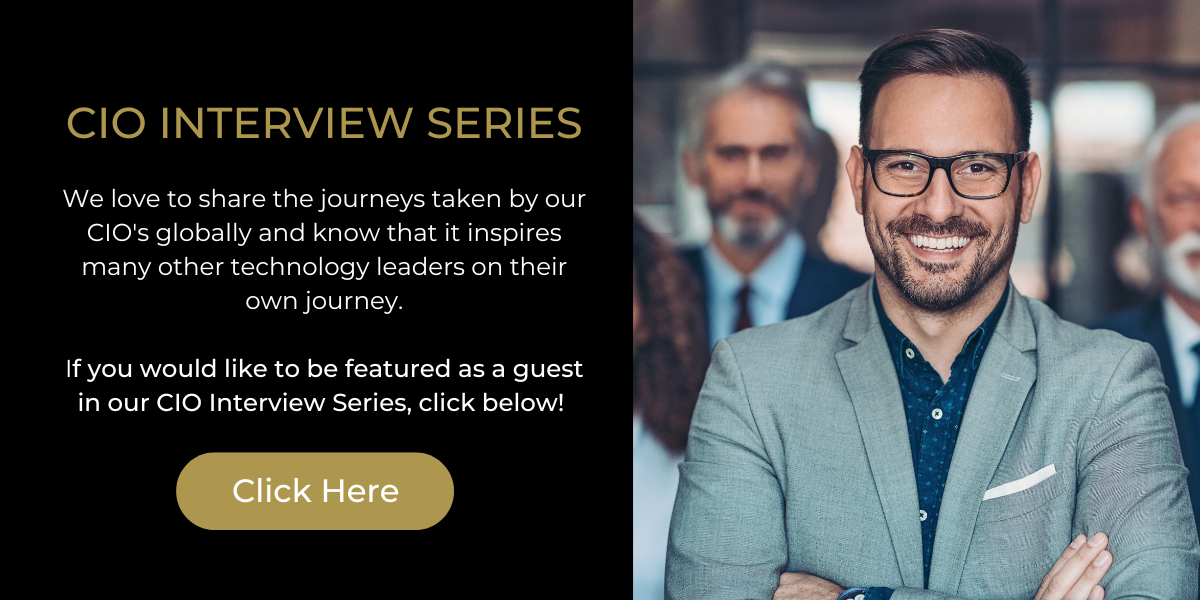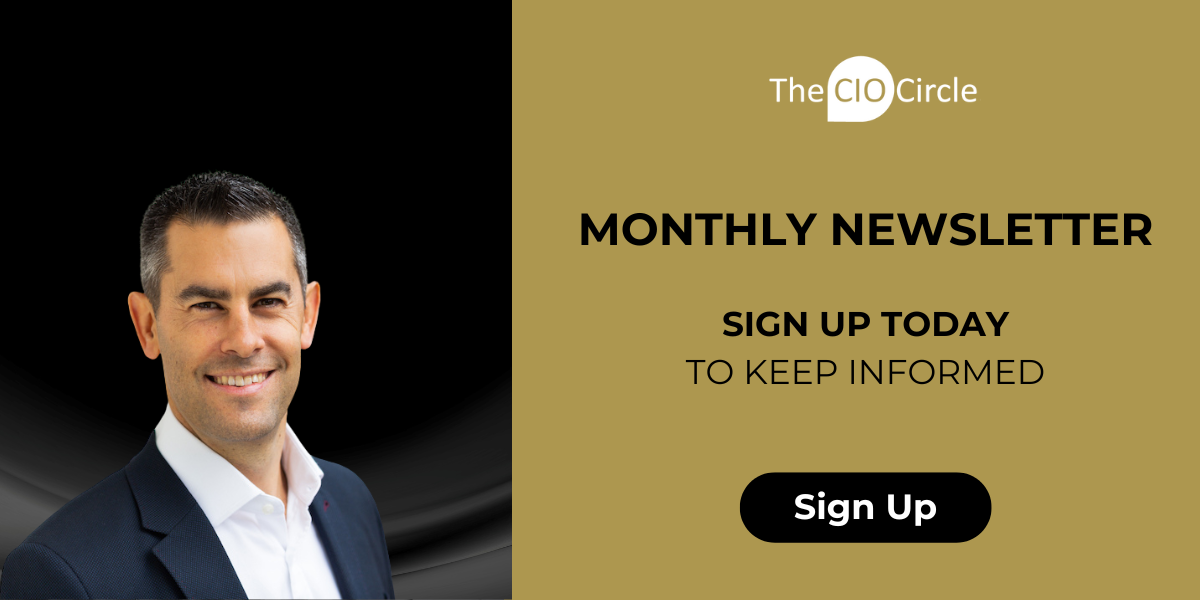PHILIP BARR
CIO at Park Avenue Finance
Can you please provide a little introduction about yourself
I am currently the Chief Information Officer at Park Avenue Finance. We are an organization that is at the forefront of researching, vetting, and bringing to market financial products that bring significant economic substance to our counterparties. I am currently based in the NYC Metro area, where I was born and raised, though I did have a year-long stint in the UK and another 6 months in Mexico. With 30 years of experience in almost every area of finance technology, I have had the opportunity to grow in understanding of what it takes to be an effective technology and information executive.
What has your journey to your position been like? What path have you taken?
While I don't think there is a typical route to becoming a CIO, I don't think my path would be considered predictable from the start. I went to Brooklyn Tech High School and Lafayette College, majoring in Civil Engineering. After qualifying for my Professional Engineers license, I utilized a program called INROADS to get an internship at Accenture (Andersen Consulting back then), doing basic programming and management consulting. Nothing to do with my major.
From there, I took a role with the most prestigious private bank in the United States. I was right out of college and the hiring manager took a chance on me, not having much experience in banking. There, I was able to grow from an analyst to a Vice President, taking various roles along the way. From programmer, to business analyst, to support manager. Here is where I first learned how to manage a global team, and utilize my understanding of cultural differences to the advantage of the firm's mission. A very useful skill that has carried over in my career.
After leaving my first full-time role (having been through 3 large mergers with that organization), I went on to become a Project Manager, Program Manager, and Global Support Manager at some of the biggest and most well-regarded global banks. I used my transferable skills for each of these, but kept my focus on people management. The pivotal milestone for me was when I was asked to take a step up and move to the UK to become a 24/7 global manager. The amount of management and leadership training I received there was essential to my final stop as a CIO.
The final milestone for me was when I signed on to an Australian Bank as the regional CTO. This is when I first became responsible for everything related to technology. From development, to support. Infrastructure to data centers. Service desks to information & cyber security. The buck stopped with me for it all! In addition, I owned 4 out of the 7 critical risks for the branch and had to undergo the scrutiny of regulatory exams every year.
Using my understanding of managing technology risk at the Australian bank as well as my background focused on "delivering to the mission", I was able to land at Park Avenue Finance as the Directory of Technology. A year later, I was promoted to CIO, having earned the respect of my boss and my colleagues. The journey wasn't a straight line, but every step seemed necessary in order for me to grow and mature into who I am now...at least professionally.
Has it always been your vision to reach the position you’re at? Was your current role part of your vision to become a tech leader?
Strangely enough, I had never thought about the role or position of CIO. I had grown up with a father that was underappreciated, but who stayed at the same company for more than 30 years. I thought that as long as you stay loyal to a large organization, they would remain loyal to you. Fortunately, or sadly (depending on your perspective) this has changed significantly, and I became focused on being the head of a department. Luckily for me, I have a wife and family that encouraged me to think bigger. Along the way, some of my managers also highlighted that I had the aptitude to become an executive instead of a supervisor or manager. I find it quite interesting that the people that are often best suited for executive roles are the ones that weren't oriented toward it from the beginning.
Have you had a role model or mentor that has helped you on your journey?
I have never had a long-term formal mentor, but I have been fortunate to have several role models throughout my career. The two most impactful ones were my first manager Mitch Scher and the second was a woman in the UK named Rebecca Joe when I was in the middle of developing my managerial style. They couldn't be more opposite on the surface. One was a middle-aged American man, while the other was a thirty-something-year-old Brit.
Mitch was a charismatic and likeable guy who chose to lead by example. Some would call it front-running, but I never saw him leave any team member behind. He showed me that I didn't have to change my natural affinity to treat everyone with respect and dignity in order to be successful. As a result of gaining everyone's respect, he was able to build a highly efficient team with complementary skills. At the time, I thought that this was a genius move which seemed to serve him well, and I vowed to take his lead, if given the opportunity.
As I entered my 15th year as a professional technologist, Rebecca spent over a year recommending me for managerial courses reserved for the top 5% of performers before she chose me to move to London to take over her global role while on maternity leave. This showed me that I could rise to the occasion, when needed, but also that there is a difference between academically knowing how to merge multiple cultures to form a global team. This was my first time applying Mitch's principles to a team that spanned Brazil, the U.S. India, and Asia. Looking back, that year held some of my fondest professional memories, while gaining some lifelong friends. There is a distinct difference between academically knowing the traits of a culture or national identity versus living inside of it. These lessons remain with me today, even though I work at a primarily US-based organization.
How do you see the role of the technology leader evolving over the next 5 years?
The successful technology leader of the future will be well-versed in multiple disciplines. As a leader, one can no longer be solely focused on just the technology they deliver, much less a single sub-discipline within technology. They have to be involved in managing the risks of delivery, as well as marketing and having a business mind. The entrepreneurial spirit will be the defining factor of the biggest breakout successes we will see over the next 5 years.
What skills do you think leaders of the future will need in order to thrive?
I don't think the leaders of the future will need a different set of skills than what is required now (or ever since the digital age). Flexibility, accountability, empathy, and a bit of risk-taking. Most people tend to like the first three, but don't know how to handle the fourth. I see risk-taking as a constant cost-benefit analysis, which leads to an educated guess. The best and most effective leaders are always pushing the envelope to find efficient solutions to issues
How do you keep current with new skills, technologies and personal development?
There are a number of ways to stay on top of new skills, technologies, and personal development. The first is old-fashioned networking. Colleagues in the industry will inevitably have insight into areas of importance. The second are through accreditations and certifications. The tests for these often reveal whether we know enough about a topic to speak intelligently about it. When it comes to personal development, however, I tend to view that as more personality development. The best thing I have done in recent years was to get a series of psychometrics on myself, and have a professional interpret them for me. Identifying blind spots along with areas of strength are often more revealing than just technical know-how. It also reveals areas where you may need to stretch and grow in order to be more well-rounded.
What do you see as the next leap in technology that will impact your business or industry in particular?
Quantum computing will be a revolutionary thing for the industry as a whole. The ability to process terra bits of data quickly. However, it poses an existential threat to the existing storage of data for companies large and small. Without proper planning, a company's risk of data breaches backed by Quantum computers will outpace the threat of traditional ransomware attacks.
"Always have a plan, but be prepared to adjust it every 30-90 days."
If you were mentoring a leader of the future, what advice or guidance would you give to help them on their way?
Always have a plan, but be prepared to adjust it every 30-90 days. Self-evaluate as often as possible, and always ask three questions.
-
- What am I doing well?
- Where can I improve?
- How do others perceive me?
These questions will keep the future leader in a growth mindset, but also recognize that they are human, and will make mistakes. I've learned much more from my mistakes than my successes!
Is there anything in particular that you would still like to achieve in your career or what is the next step on your journey?
I would still like to remain focused on getting Park Avenue Finance across the $10 Billion mark as soon as possible. Seeing something grow from a startup to $1 Billion has been the joy of my career, but I don't see myself stopping there. There are many thresholds to cross. Some of them are monetary, and others are built around global expansion. Only time will tell.
If you could change one thing in the world, what would it be?
Other details that you'd like to add:
One such decision started right out of high school. I had the opportunity to go to MIT, but I was averse to having student debt and decided to go to Lafayette College on an academic scholarship. Additionally, I built a network of peers through years of work and integration. I also took the risk of working abroad when presented with it. All of these things are what gave me success. I am proud of the fact that I did not start off with a large student loan and built my career through each stage of my career, while gaining success along the way. Without the help of others, including my parents and family, I don't know that I would have arrived where I am now. As I said before, the path to success is rarely straight, but the road is only as narrow as you make it. Be open to new possibilities, and you can find untold amounts of joy and success.
A big thank you to Philip Barr from Park Avenue Finance for sharing his journey to date.
If you would like to gain more perspective from Tech Leaders and CIOs you can read some of our other interviews here.
July 10, 2024


